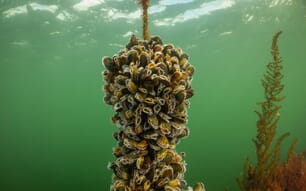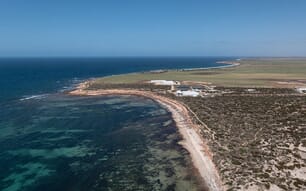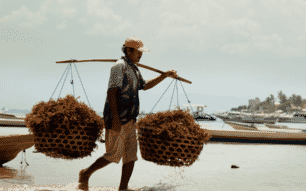Following the announcement of the plans to speed up negotiations, all Members States agreed the proposal. The reason behind this move is that the next Lithuanian presidency is not able to take on such a reform in addition to all its other priorities - so to avoid the reform being kicked into 2014 a decision to speed up the decision-making process has been taken, said a statement from WWF.
It was also agreed that some flexibility must be shown towards the European Parliament during the negotiations to ensure compromises are made. However on this point, ‘flexibility’ was nowhere to be heard during presentations by each Member State, relating to the four most sensitive issues where the Council positions differ most from the European Parliament on: recovery of fish stocks (MSY) landing obligations (discards), regionalisation, and fleet capacity. Only five countries (UK, Denmark, Poland, Germany and Italy) showed some flexibility for MSY, but not in much detail.
Tony Long, Director, WWF European Policy Office: “The conclusions of this Agri-Fish council on EU fisheries reform are a contradiction in terms: on the one hand Member States agreed to step up the pace of the negotiations to reach a good deal by the next Council in May, but on the other hand they remain firmly rooted in their position despite the trilogues. They have not moved closer to the position of the European Parliament regarding the cornerstone issues of this reform package that would guarantee sustainability for fisheries in Europe. The Irish Presidency must absolutely push the Council to be progressive on all fronts, not just in its speed in reaching a final agreement.”
Also at the council yesterday, EU Fisheries Commissioner, Maria Damanaki, discussed with Ministers the Action Plan adopted by the Commission to address the problem of incidental catches of seabirds.
The proposal that was put on the table has at its core international guidelines that list measures fishermen should take to avoid catching seabirds during fishing operations.
There are numerous ways in which fisherman can help to put an end to the unfortunate seabird by-catches and work against the extinction of some seabird species by setting longlines at night, having bird scaring lines and many more, said Ms Damanaki.
The Action Plan lists all possible measures that have been developed, adapts them to fisheries within the EU to date and also identifies the need for more research and awareness-raising.
"We are ready to help our fishermen in any way possible towards this. For example, we are discussing possible funding opportunities, giving up to 85 per cent of the total amount that is needed for them to do the necessary technical adaptations for mitigation," commented Ms Damanaki in her blog.
In regards to reaching fishing agreements with Morocco and Mauritania, the Spanish Minister of Agriculture, Food and Environment, Miguel Arias Cañete, stated the urgency of reaching an agreement as the Spanish fisheries sector is unable to rely on compensation any longer for its fleet affected by the halt in fishing.
Speaking to media following the Council, Mr Arias Cañete explained that there has been great advances in the technical and financial compensation with regard to the agreement with Morocco.
"The agreement now only depends on Morocco's response to solving the problems of a political nature. The technical and financial aspects, it seems, are resolved," he explained.



